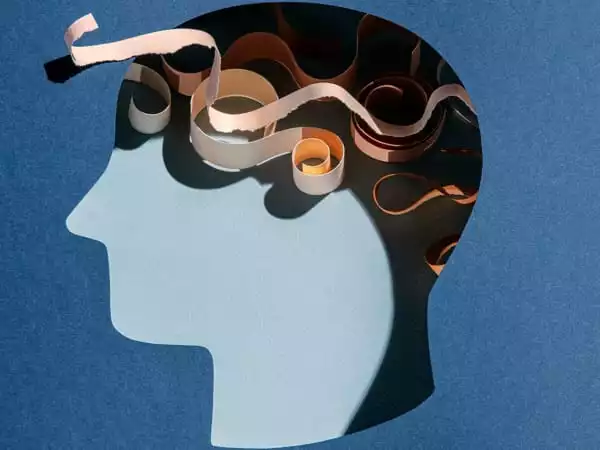According to a big research of women residing in the United Kingdom, women who experience very early menopause (before the age of 40) are 35% more likely to acquire some sort of dementia later in life than those who reach menopause around the age of 50. Women who reached menopause before the age of 45 had a 1.3-fold increased risk of developing dementia before the age of 65. Furthermore, women who started menopause later, at age 52 or beyond, had the same dementia risk as women who entered menopause at the usual age for menopause onset, which is 50 to 51 years.
According to preliminary research to be presented at the American Heart Association’s Epidemiology, Prevention, Lifestyle, and Cardiometabolic Health Conference 2022, women who enter menopause very early, before the age of 40, are more likely to develop dementia of any type later in life than women who begin menopause at the average menopause-onset age of 50 to 51 years.
“Our study indicated that women who reach menopause at a young age are more likely to get dementia later in life,” said Wenting Hao, M.D., a Ph.D. candidate at Shandong University in Jinan, China. “Being aware of this higher risk might help women implement dementia prevention techniques and collaborate with their doctors to constantly evaluate their cognitive health as they age.”
Dementia is characterized by significant changes in the brain that affect a person’s capacity to remember, make decisions, and communicate. The most common type of dementia is Alzheimer’s disease, followed by vascular dementia, which is caused by disturbances in blood flow to brain cells caused by strokes or plaque buildup in arteries providing blood to the brain. Both of these types of dementia become increasingly common as people get older. Dementia can also be caused by diseases that damage specific areas of the brain, and a person can have dementia from more than one disease process.
Our study indicated that women who reach menopause at a young age are more likely to get dementia later in life. Being aware of this higher risk might help women implement dementia prevention techniques and collaborate with their doctors to constantly evaluate their cognitive health as they age.
Wenting Hao
The current study looked at the potential link between the age at which menopause begins and the diagnosis of dementia from any cause. Health data from 153,291 women with an average age of 60 years when they joined the UK Biobank (between 2006 and 2010) were analyzed. The UK Biobank is a massive biological database including genetic and health information on 500,000 people in the United Kingdom.
The researchers identified all varieties of dementia, including Alzheimer’s disease, vascular dementia, and dementias caused by other factors. They assessed the chance of occurrence based on the age at which the women reported entering menopause, compared to women who began menopause at the typical age of menopause onset, which is 50-51 years (51 years is the average age for menopause onset among women in the U.S.). The findings were adjusted for parameters such as age at the time of the last exam, race, educational level, cigarette and alcohol usage, body mass index, cardiovascular disease, diabetes, income, and leisure and physical activities.

The analysis found:
- Women who went through menopause before the age of 40 were 35% more likely to be diagnosed with dementia.
- Women who went through menopause before the age of 45 were 1.3 times more likely to be diagnosed with dementia before the age of 65. (called presenile or early-onset dementia).
- Women who began menopause at the age of 52 or beyond had similar rates of dementia as women who began menopause at the usual age of menopause onset, which is 50-51 years.
Although post-menopausal women are more likely to have a stroke than pre-menopausal women, and stroke can impair blood flow to the brain, leading to vascular dementia, the researchers found no link between age at menopause and the risk of vascular dementia in this study.
“Dementia may be avoided, and there are several approaches for women experiencing early menopause to lower their risk of dementia. This includes regular exercise, involvement in leisure and educational activities, not smoking or drinking alcohol, maintaining a healthy weight, receiving adequate vitamin D, and, if prescribed by their doctor, possibly taking calcium supplements” Hao stated his case.
Lower estrogen levels, according to the researchers, may be a component in the possible link between early menopause and dementia. “We know that long-term estrogen deficiency increases oxidative stress, which may accelerate brain aging and lead to cognitive impairment,” Hao explained.
Women’s health physicians should be aware of a woman’s age at menopause onset and regularly monitor potential cognitive deterioration in those who experienced menopause before the age of 45.
“Further research is required to determine the added usefulness of integrating menopausal timing as a predictor in existing dementia models,” Hao said. “This could provide medics with a more accurate technique to measure a woman’s dementia risk.”
There are various limitations to the study. The researchers based their findings on women’s self-reported ages at menopause onset. Furthermore, the researchers did not distinguish dementia rates in women who had naturally occurring early menopause from those who had menopause caused by surgery to remove the ovaries, which may have influenced the findings. This study’s data contained predominantly white women residing in the United Kingdom and may not be generalizable to other demographics.
















